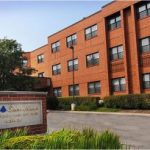Senior housing/healthcare borrowers have grown accustomed to interest rates at historic lows, but seasoned veterans of interest rate wars recall a frothier era when short-term interest rates soared to 22 percent and long rates hovered behind at 15.5 percent in the most lopsided yield curve anyone alive on the planet today can remember.
We have the Federal Reserve Board and its relentless war on inflation to thank for this aberration. In the1970s, the central bank’s choke-hold on the financial markets did, in fact, reverse inflation’s trajectory. But this effort made doing commercial real estate deals either unwise or impossible – with one notable exception.
Cambridge Realty Capital Companies Chairman Jeffrey A. Davis recalls that during this era, nursing home projects moved forward despite the flinty economy. This reality was an indelible memory by the time he incorporated his own business in Chicago in 1983.
In the early years Cambridge mostly focused on financing office buildings and retail centers. Then Partner Andy Erkes joined the business with expertise in funding apartment buildings using FHA-insured HUD funding, and the company tested these waters.
From the start, Cambridge counted a little known HUD 232 funding program for nursing homes among the lending products it was prepared to offer regional clients. When the State of Illinois lifted a 10-year certificate of need moratorium in the late 1980s, the company was able to step up and provide funding for an apartment developer client who had obtained a certificate of need to build a nursing home in a Chicago suburb.
An even bigger coup was being chosen to provide construction and permanent HUD financing for a replacement nursing home in Atlanta. In a very short period of time the company had successfully funded its first regional and national nursing home deals and began to see an appealing new direction.
Over a 20-year period dating from the mid-1990s, Cambridge closed more than 400 senior housing/healthcare transactions totaling more than $4.5 billion. Effectively, the company has had a front row seat watching HUD emerge as the primary funding source for senior housing/healthcare borrowers, Mr. Davis said.
“We’ve made a significant investment in personnel, infrastructure and technology, and have embraced a corporate philosophy that stresses flexibility and adaptability. We also make a concerted effort to utilize the unique abilities of key personnel, putting our people in positions that enable them to succeed.
“The expertise and knowledge we’ve gained underwriting senior housing/healthcare properties in good times and bad is widely appreciated by our clients today,” he said.




